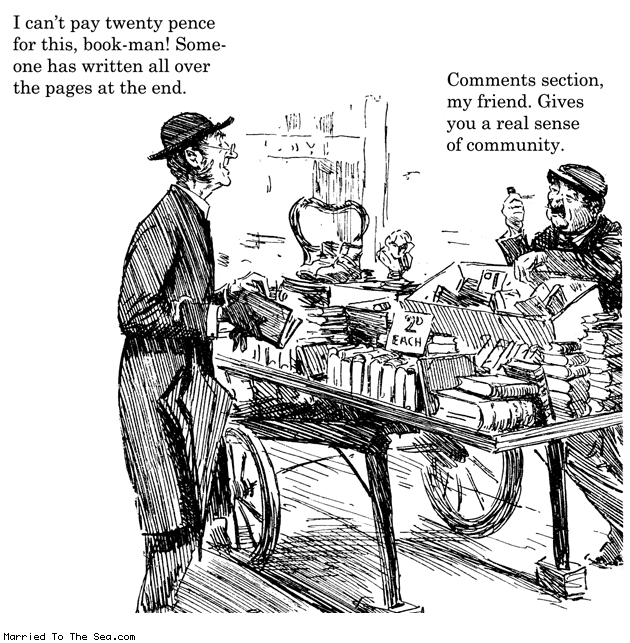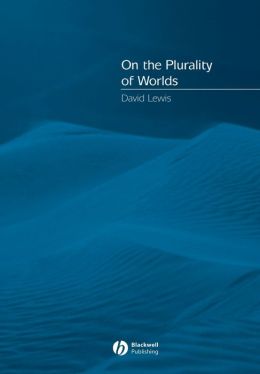Between the hours of four and six a. m., one after the other, according to their station upon the roll, all the mails from the N[orth] — the E[ast] — the W[est] — the S[outh] — whence, according to some curious etymologists, comes the magical word NEWS — drove up successively to the post-office, and rendered up their heart-shaking budgets ; none earlier than four o'clock, none later than six. I am speaking of days when all things moved slowly.
Thus wrote Thomas De Quincey in his Confessions of an English Opium Eater in 1821. I really love that apocryphal etymology of the word news. I wish it were true.
Old news
“I am speaking of days when all things moved slowly,” he writes, probably quaking in his boots in the advent of the steam age, the advent of train transport and the telegraph and all things T. In our digital age it is hard to comprehend the physical limitations of the past in such simple things as transmitting a message, but there it is. In vast ancient kingdoms, news was always, inherently, old news, a gaze into the past, like the light of distant stars.

But messages can be useful. Communication is important. It is the invention of news for news' sake (for no sake in particular) that has always confounded me. A moral stigma is attached to 'keeping up to speed with the world'. I can see how newspapers are useful in times of religious, governmental or feudal repression. The idea of decentralizing news was perhaps therefore honorable, but the whole idea of independent news seems a utopia. Surely all newspapers have an agenda or at least strong political leanings. These days, for instance, nearly all newspapers include advertising (or even advertisements dressed up as articles).
Back in 1854, in Walden, Thoreau complained about the pointlessness and vacuity of reading the papers:
And I am sure that I have never read any memorable news in a newspaper. If we read of one man robbed, or murdered, or killed by accident, or one house burned, or one vessel wrecked, or one steamboat blown up, or one cow run over on the Western Railroad, or one mad dog killed, or one lot of grasshoppers in the winter, we never need read of another. One is enough. If you are acquainted with the principle, what do you care for a myriad instances and applications? To a philosopher all news, as it is called, is gossip, and they who edit and read it are old women over their tea.
Jorge Luis Borges must have felt the same way about it, and he never tries to hide his contempt of journalists in his stories. He felt that newspapermen wrote for oblivion. During the Second World War, according to Cees Nooteboom in Een avond in Isfahan, instead of reading the newspapers, Borges was reading the Annals of Tacitus on the Punic Wars. “He called the newspaper ‘that museum of everyday trivialities’, he despises that which I love.” Yes, Nooteboom is famous for his travel writing, and everywhere he goes he picks up the newspaper to get the hang of the place. Poet David Berman does the same thing, though at the same time he subscribes to Thoreau's point of view, or has to admit, at least, as Mark Twain so elegantly formulated, that if history does not repeat itself, at least it rhymes:
Sometimes I am buying a newspaper
in a strange city and think
"I am about to learn what it's like to live here."
Oftentimes there is a news item
about the complaints of homeowners
who live beside the airport
and I realize that I read an article
on this subject nearly once a year
and always receive the same image:I am in bed late at night
in my house near the airport
listening to the jets fly overhead
a strange wife sleeping beside me.
In my mind, the bedroom is an amalgamation
of various cold medicine commercial sets
(there is always a box of tissue on the nightstand).I know these recurring news articles are clues,
flaws in the design though I haven't figured out
how to string them together yet,
but I've begun to notice that the same people
are dying over and over again,
for instance Minnie Pearl
who died this year
for the fourth time in four years.
New news
A squirrel dying in front of your house may be more relevant to your interests right now than people dying in Africa.
Thus spoke Mark Zuckerberg. Without wanting to judge it, that single sentence by one of the most influential people in the world right now might summarise best of all the way news is going. The problem outlined above about news is that popular news tended to repeat itself, because popular subjects never changed. People are drawn to disasters and gossip. There was just no market for marginalized culture. Now, with the Internet, that changed.
You might not have heard about it, but a few months ago Google silently abandoned its Reader project. Google Reader was the most popular RSS reader service. That it was not popular enough for Google to want to sustain it, is telling for the fate of RSS. The RSS protocol allows for subscription to specific news sources, essentially allowing everyone to compile his own news channel. The reason it is on the way down, I think, is because it misses an important Web 2.0 aspect: interactivity (which is just a front for: information). If everyone uses RSS, news aggregate sites cannot rank news articles, and Facebook cannot count likes, and we cannot show our love. There would be no button for us to click on. Because that is the future. We select the news. You might consider that democratic, and a good thing, but please read that Zuckerberg quote again. According to research, more and more people use Facebook as an access point to news. Facebook is very oblique about its algorithm for sorting updates. Effectively, they decide what kind of news is important to you, and they have peculiar views on it.
Another part of that democratization that we all love, is the ability for everyone to comment. Everyone who has ever perused a comment section of almost any website, knows that just because everybody can be an author does not mean that everyone should be. As Charlie Brooker has it:
These days most newspaper sites are geared towards encouraging interaction with the minuscule fraction of readers who bother to interact back, which is a pity because I'm selfishly uninterested in conducting any kind of meaningful dialogue with humankind in general. I'd say Twitter's better for back-and-forth discussion anyway, if you could be arsed with it. Yelling out the window at passersby is another option.
When it comes to comments, despite not being as funny as I never was in the first place, I get an incredibly easy ride from passing wellwishers compared with any woman who dares write anything on the internet anywhere about anything at all, the ugly bitch, boo, go home bitch go home. Getting slagged off online is par for the course, and absorbing the odd bit of constructive criticism is character-building. The positive comments are more unsettling. Who needs to see typed applause accompanying an article? It's just weird. I don't get it.
The point being, that comment sections, instead of being innocent and independent addendums to a news site, help form the articles itself, because it's very hard not to have their vocal power in mind when writing something on the Web. The volume of the Mob is a strong and intimidating one, and it might keep a lot of interesting people from posting, from sharing news.

Future news
In 2009, when Tiger Woods was in the news for having an affair, the media had a problem: there were no images to be shown, be they still or moving. Luckily, technology offered a solution: we just create a simulation and that will do. Next Media Animation, a Taiwan company, has made a living doing just that: turning news into animation, animation into news. I think this is the logical next step for news. Since control over everything is what we long for, that includes the news, and we will be able to create the news that we desire, featuring the sound and images we desire, in the order we desire, and we can have them written for us. The world is malleable.
The Internet has evolved into a Star System: though there is so much material available, a small part of it takes all the attention, while the rest amount to towncriers screaming into the void. The future of news will be social, Facebook and the Huffington Post declared. We are social creatures, and we like to follow each other. If everyone truly had its unique news feed, we'd have nothing to talk about anymore. Still, it's a missed chance. The exciting thing about the Internet was that we finally had a choice. The whole experiment of the Web proves that we don't want to have that choice; we want to be led by the hand, we want to be told what to watch, what to listen to and what to read. It's just that we want to be told by different people every now and then, so we don't feel repressed, so we can retain the illusion of freedom. I guess it's a good thing then if in the future the news will be automatically created, selected and spread, without any human input. We prefer to be underlings to robots over being underlings to other humans. We prefer to be all watched over by machines of loving grace.
In the meantime, I'll be sticking to my RSS guns. For what it's worth.

 David Kellogg Lewis was an American philosopher who has been very influential during the 20th century. His best known thesis, modal realism, is also his most remarkable. It claims that there are an infinity of possible worlds (think parallel universes), and not just hypothetically: each of them is as real as the one we live in. Every logically possible universe exists. Lewis' thesis was foreshadowed by many sci-fi stories. In one of them, Fredric Brown's What Mad Universe (via
David Kellogg Lewis was an American philosopher who has been very influential during the 20th century. His best known thesis, modal realism, is also his most remarkable. It claims that there are an infinity of possible worlds (think parallel universes), and not just hypothetically: each of them is as real as the one we live in. Every logically possible universe exists. Lewis' thesis was foreshadowed by many sci-fi stories. In one of them, Fredric Brown's What Mad Universe (via 
 Willingly? Well, sort of. We agreed, after all. As the documentary
Willingly? Well, sort of. We agreed, after all. As the documentary 